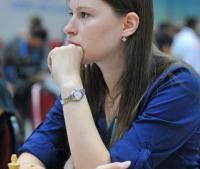
How to Analyze Chess Games
One of the most efficient ways of improving in chess is analyzing one’s own games. The legendary world chess champion Botvinnik emphasized the importance of this activity and urged masters to publish analyses of their games in the media. I believe that most readers will agree with me that studying one’s mistakes is more important than dwelling on other people’s failures. There is just one tiny problem: most chess players have no idea how to do it.
Ok, another round has ended. You are tired and worried about the next game, so why bother making things worse by reviewing today’s loss? Oh, sorry, did you actually win? A won game is won, why bother looking at it? Sounds funny, but many chess players really act this way.
A second widespread option is far from perfect too: after the end of the tournament the player turns on his PC, quickly pinpoints the blunders and substitutes them with the “right” moves (using space bar) and hastily edits the opening tree (the dubious moves are replaced by the most popular book lines). A quarter of an hour, and you’re done! This approach hardly achieves anything though.
If the description above more or less fits you, you might ask: and what is the correct way to analyze games? Let’s talk about it in detail:
1. Right after the game is over you should write down the thoughts you had in mind during the encounter. This will help you understand the nature of your mistakes later on. For example, put down: “I wanted to get the knight to f5, but was afraid of the move g5 by Black.” Or “I believed this exchange leads to a favorable pawn structure, so I wanted to trade all the pieces and win the endgame.” At this stage there is no need for using chess engines. Of course, you may be forced to fix your openings if someone finds a hole there. Let your coach/second (if available) do it, or review the variation yourself, but don’t feed the whole game to your computer assistant.
2. Once you have spare time (after the tournament), you should recall what happened over the board. Your notes will prove helpful at this point. Now you will have a chance to reconsider your decisions and try to understand where you went wrong. Try to scan the game move by move and find tactical refutations, positional errors, right plans, etc. Annotate the game again using a different color, e.g. “I wanted to get the knight to f5, but was afraid of the move g5 by Black”. "I guess I should have done that anyway since g5 runs into h4 with good attacking chances for White".
3. After you’re done, you may finally bring your chess engine to the rescue. Take a look at the mistakes you have made otb and during your home analysis. Pay special attention to the positions where you couldn’t find the right solution after two attempts. For instance, if you blundered terribly otb, chances are you will be able to find the correct move at home. However, if the nature of your mistake was deeper, e.g. not understanding a certain middlegame position or not knowing how to handle an endgame, chances are you will face problems untangling it even during post-mortem. In this case your PC or coach may prove extremely helpful.
4. After you have reviewed the game and annotations using a chess engine, pay special attention to the key moments of the game. Memorize the associated principles, e.g. “in such rook endgames the pawns should be placed like this.” Or “in this opening the light-squared bishop shouldn’t be exchanged since keeping it is essential for protecting the light squares on the queenside.” Or “in such structures an isolated pawn may prove to be a force, not a weakness.” The same refers to your opening tree – make the appropriate changes.
Last time we have seen a game from the Mulhouse 2010-GM tournament that I should have won, but lost. Now the case is different: I was totally lost, but managed to hang on and eventually grab the full point. Here is how it proceeded:
Having faced serious problems in the opening, I had to analyze the game carefully to make sure it doesn’t happen again. Also, thanks to the analysis, I have refreshed my knowledge of rook endings and Q vs R. This is very beneficial for an improving chess player.
P.S. A classic reminder: I understand perfectly well that for many people chess is just a game played for fun, so I am not claiming that everyone should follow the steps described above. However, for people who take chess seriously and/or set ambitious goals, this process is almost a must-do. 






